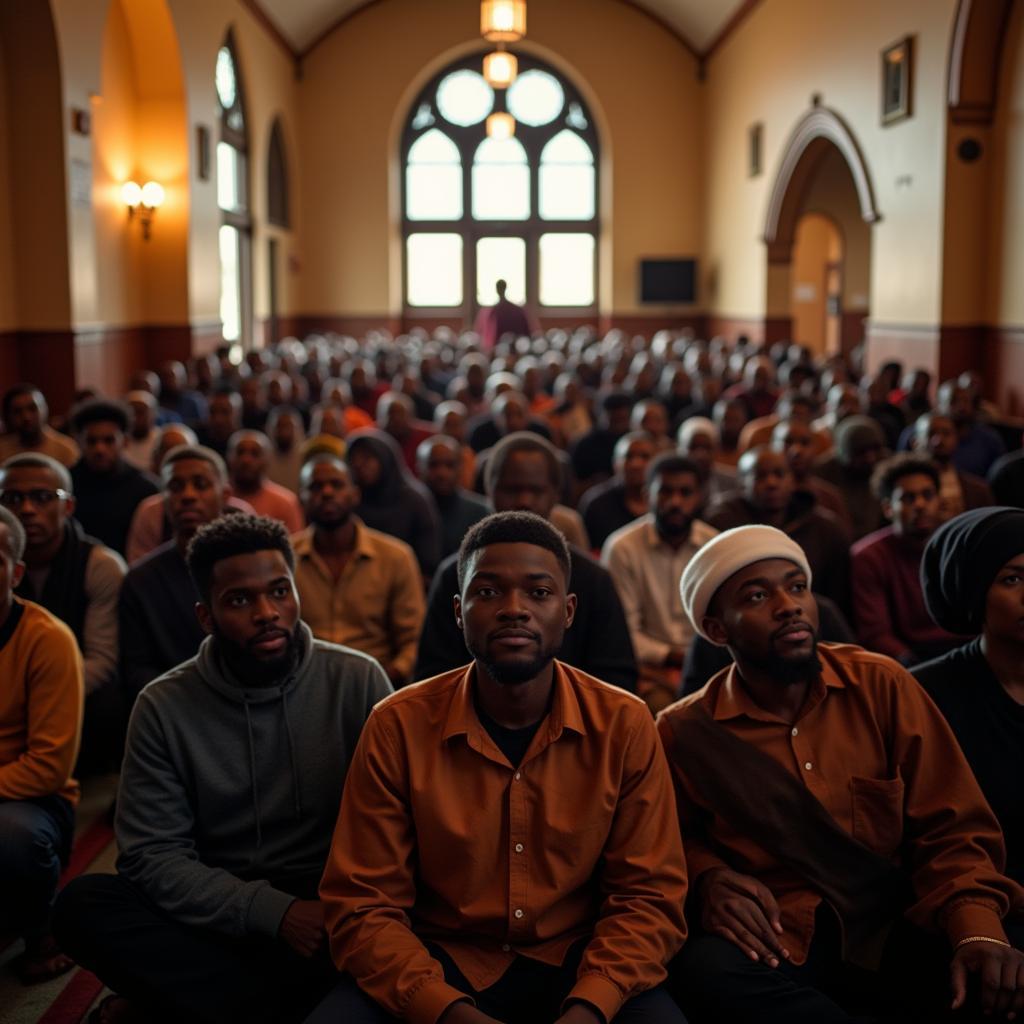African American Conversion to Islam: A Journey of Faith and Identity
The conversion of African Americans to Islam is a multifaceted phenomenon, deeply intertwined with historical, social, and spiritual factors. This exploration delves into the motivations, challenges, and impact of this significant religious shift within the African American community.
A Historical Tapestry: Tracing the Roots
The presence of Islam within the African American experience predates the transatlantic slave trade. A significant portion of enslaved Africans brought to the Americas were Muslim, carrying with them their faith and traditions. However, the brutal system of slavery sought to strip away their religious identity, forcing conversions to Christianity.
Despite the oppressive conditions, whispers of Islamic faith persisted, passed down through generations in secrecy. The late 19th and early 20th centuries witnessed a resurgence of interest in Islam, fueled by the arrival of Muslim immigrants from various parts of the world and the rise of Black Nationalist movements.
 Family Reading Quran
Family Reading Quran
The Nation of Islam: A Catalyst for Change
The Nation of Islam (NOI), founded in 1930, played a pivotal role in introducing Islam to a wider African American audience. While its teachings diverged from mainstream Islamic theology, emphasizing Black empowerment and self-determination, the NOI resonated with many seeking solace from racial injustice and systemic oppression. Prominent figures like Malcolm X rose to prominence within the NOI, advocating for Black pride and challenging racial segregation.
Embracing Orthodox Islam: A Shift in Paradigm
The latter half of the 20th century witnessed a notable shift within the African American Muslim community. Many, disillusioned by the NOI’s departure from traditional Islamic principles, embraced Sunni Islam. This transition was marked by a desire to connect with the global Muslim community and adhere to the teachings of the Quran and the Prophet Muhammad.
Motivations for Conversion: Seeking Truth and Justice
The reasons behind African American Conversion To Islam are diverse and deeply personal. Many cite the religion’s emphasis on social justice, equality, and spiritual fulfillment as key motivators. Islam’s condemnation of racism and its message of universal brotherhood resonate deeply with those who have experienced racial discrimination and prejudice.
“Islam provided me with a sense of belonging and purpose that I had never felt before. It addressed the issues of racial inequality and social injustice head-on, offering a path towards liberation and empowerment.” – Aisha Muhammad, community activist and convert to Islam
 Congregation in Prayer
Congregation in Prayer
Challenges and Triumphs: Navigating a Complex Landscape
African American Muslims continue to face unique challenges. Islamophobia and prejudice from both within and outside the Black community persist. Additionally, navigating issues of cultural identity and integration within a predominantly immigrant-based Muslim community presents ongoing complexities.
Despite these obstacles, African American Muslims have made significant contributions to American society in various fields, including academia, activism, arts, and culture. Their voices and perspectives enrich the tapestry of American Islam and contribute to a more inclusive and understanding society.
Conclusion: A Continuing Legacy of Faith and Resilience
The conversion of African Americans to Islam is a testament to the enduring human spirit’s search for meaning, purpose, and belonging. This ongoing journey of faith and identity continues to shape the religious landscape of the United States, fostering dialogue, challenging stereotypes, and promoting understanding between communities.

